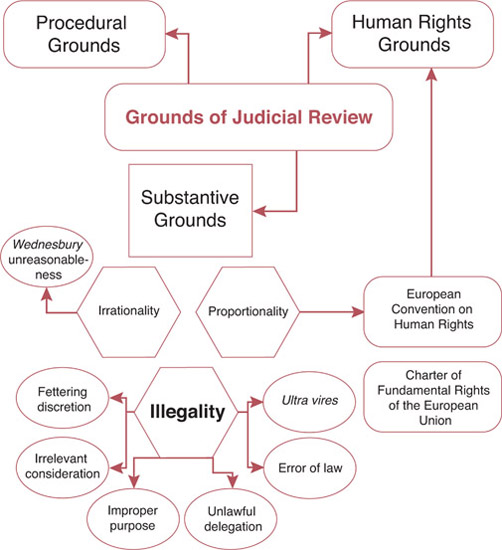Grounds Law: Your Ultimate Guide To Understanding And Navigating Legal Grounds
Grounds law is a cornerstone of legal systems worldwide, and understanding it can be the difference between winning and losing in court. Whether you're a legal professional, a student, or just someone trying to protect their rights, this topic matters. Imagine walking into a courtroom without knowing the legal grounds that support your case—it’s like showing up to a battle without weapons. Grounds law gives you the ammunition you need to fight for justice.
Now, I know what you're thinking—law can get super complicated, right? But don’t sweat it. In this article, we’re going to break it down in a way that’s easy to digest. We’ll cover everything from the basics of grounds law to how it applies in real-life situations. Think of it as your cheat sheet for navigating the legal maze.
Before we dive in, let’s set the stage. Grounds law isn’t just about knowing the rules; it’s about understanding how those rules work in practice. By the time you finish reading this, you’ll have a solid grasp of the ins and outs of grounds law and how it impacts your life. Ready? Let’s go!
Read also:Kayleigh Mcenany Husband Net Worth The Inside Scoop Youve Been Waiting For
What Exactly Are Grounds in Law?
Let’s start with the basics. When we talk about grounds in law, we’re referring to the legal reasons or justifications that form the basis of a claim, defense, or appeal. It’s like the foundation of a house—if it’s weak, the whole structure collapses. Grounds law ensures that every legal argument is built on solid ground, so to speak.
In legal terms, grounds can vary depending on the jurisdiction and the specific area of law. For example, in contract law, a breach of contract might be a valid ground for filing a lawsuit. In family law, grounds for divorce could include adultery, abandonment, or irreconcilable differences. The key takeaway here is that grounds provide the legal framework for making claims or contesting decisions.
Here’s a quick rundown of some common legal grounds:
- Breach of Contract: When one party fails to fulfill their obligations under a contract.
- Unlawful Termination: Firing an employee without a valid reason or in violation of employment laws.
- Self-Defense: A legal justification for using force to protect oneself or others.
- Grounds for Divorce: Legal reasons for seeking a divorce, such as infidelity or domestic violence.
Why Grounds Law Matters
Grounds law isn’t just a fancy term for lawyers to throw around—it’s a critical component of the legal system. Without clear grounds, cases would be chaotic, and justice would be harder to achieve. Think about it: if anyone could file a lawsuit without a valid reason, the courts would be overwhelmed with frivolous claims.
Grounds law helps maintain order by ensuring that every legal action is based on a solid foundation. It also protects individuals and organizations from baseless accusations. For instance, if someone accuses you of defamation, the court will examine the grounds to determine whether the claim is legitimate.
Additionally, grounds law plays a vital role in appeals. If you believe a court decision was unfair, you need to present strong grounds for overturning it. This could include procedural errors, new evidence, or a misapplication of the law. In short, grounds law is the backbone of the legal process.
Read also:Jessie Murph Family A Closer Look Into Their Lives Legacy And Influence
Common Types of Legal Grounds
Legal grounds come in many forms, and they vary depending on the type of case. Let’s explore some of the most common types:
Civil Law Grounds
In civil law, grounds often revolve around disputes between individuals or organizations. For example:
- Breach of Duty: Failing to meet a legal obligation, such as providing safe working conditions.
- Negligence: Acting carelessly and causing harm to others.
- Fraud: Intentionally deceiving someone for personal or financial gain.
Criminal Law Grounds
Criminal law grounds focus on violations of the law that result in criminal charges. Examples include:
- Self-Defense: Using reasonable force to protect oneself from harm.
- Involuntary Intoxication: Committing a crime while under the influence of drugs or alcohol without consent.
- Insanity: Lacking the mental capacity to understand the nature of one’s actions.
How Grounds Law Affects Everyday Life
You might be wondering, “How does grounds law affect me?” The truth is, it impacts almost every aspect of your life. Whether you’re signing a contract, dealing with a workplace dispute, or navigating a personal relationship, legal grounds come into play.
For instance, if you’re renting an apartment and the landlord fails to maintain the property, you might have grounds to terminate the lease or seek compensation. Similarly, if you’re involved in a car accident, understanding the grounds for filing a personal injury claim can make all the difference.
Even in less formal situations, knowing your legal rights can empower you to stand up for yourself. Grounds law gives you the tools to navigate these challenges with confidence.
Key Principles of Grounds Law
Grounds law is built on several key principles that ensure fairness and justice. Let’s take a look at some of the most important ones:
Relevance
For a ground to be valid, it must be directly relevant to the case. For example, if you’re suing for breach of contract, you need to show how the other party failed to meet their obligations under the agreement.
Proportionality
The severity of the legal action should match the seriousness of the offense. For instance, firing an employee for a minor mistake might not be considered proportional unless it poses a significant risk to the company.
Evidence
Grounds must be supported by credible evidence. This could include documents, witness testimonies, or expert opinions. Without solid evidence, even the strongest grounds can fall apart in court.
Grounds Law in Action: Real-Life Examples
Let’s bring this to life with some real-world examples. These cases illustrate how grounds law plays out in practice:
Example 1: Employment Dispute
John was fired from his job after 10 years of loyal service. He believes the termination was unfair and decides to file a wrongful termination claim. His grounds include:
- Lack of proper documentation for the alleged misconduct.
- Inconsistent application of company policies.
- Potential discrimination based on age.
Example 2: Contract Dispute
Sarah entered into a contract with a supplier to deliver goods for her business. When the supplier failed to meet the agreed-upon deadlines, Sarah had grounds to seek damages. Her case was supported by:
- Written communication outlining the delivery schedule.
- Proof of financial losses due to the delay.
- Testimonies from other affected customers.
Challenges in Applying Grounds Law
While grounds law is essential, it’s not without its challenges. One of the biggest hurdles is understanding the specific requirements for each type of case. For example, what constitutes valid grounds for a personal injury claim might differ from those for a breach of contract.
Another challenge is gathering sufficient evidence to support your grounds. This often requires extensive research and documentation. In some cases, hiring a legal expert might be necessary to ensure your case is airtight.
Finally, there’s the issue of interpretation. Different judges and juries might interpret the same grounds differently, leading to inconsistent outcomes. This is why it’s crucial to present your case clearly and convincingly.
Tips for Navigating Grounds Law
Now that you understand the basics, here are some tips to help you navigate grounds law:
- Know Your Rights: Familiarize yourself with the laws that apply to your situation.
- Gather Evidence: Collect all relevant documents, emails, and other forms of proof.
- Consult a Lawyer: If you’re unsure about your grounds, seek professional advice.
- Stay Organized: Keep detailed records of all communications and actions related to your case.
Conclusion: Take Control of Your Legal Journey
In conclusion, grounds law is a powerful tool for protecting your rights and seeking justice. By understanding the basics and applying them to your situation, you can navigate the legal system with confidence. Remember, knowledge is power—and when it comes to grounds law, having the right information can make all the difference.
So, what’s next? If you found this article helpful, share it with others who might benefit from it. And don’t forget to leave a comment below—your feedback helps us create better content for you. Until next time, stay informed and stay strong!
Table of Contents
- What Exactly Are Grounds in Law?
- Why Grounds Law Matters
- Common Types of Legal Grounds
- How Grounds Law Affects Everyday Life
- Key Principles of Grounds Law
- Grounds Law in Action: Real-Life Examples
- Challenges in Applying Grounds Law
- Tips for Navigating Grounds Law
- Conclusion: Take Control of Your Legal Journey
Article Recommendations


